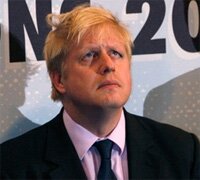Why is the BBC flexing media muscle in the travel market?
Last November I wrote a piece outlining the worrying implications of the BBC’s acquisition of Lonely Planet for the Corporation’s non-commercial UK neutrality. I’m not the only travel journalist with these sorts of doubts. The BBC Royal Charter and Agreement, remember, is very clear on how the Beeb can and cannot interact with the UK media market:
The Agreement requires all commercial activities undertaken by the BBC to comply with four criteria. …
4. comply with BBC fair trading guidelines and in particular avoid distorting the market.
Of course, that begs a whole series of questions, but this much is plain: BBC Worldwide activities that distort a domestic market in which the corporation is a player are forbidden. This, essentially, was the basis for the decision to disallow BBC investment in ultra-local video last year. It’s the reason that the BBC’s acquisition (through BBC Worldwide) of Lonely Planet should be reversed at the first opportunity.
The opportunities for LP–BBC print cross-promotion are blatant enough. Shiny new Lonely Planet Magazine‘s launch issue featured a story by Stephen Fry, that tied in with his fine …in America book and series. The second issue has David Attenborough in “The land that time forgot“, the Galapagos. I wonder how easy a non-BBC subsidiary would find it to commission a travel feature from either of those two. Unlike, say, Top Gear Magazine, this is a market segment in which the BBC had zero presence until November 2007.
As I predicted in my previous piece, both issues have been light on advertising. In rotten market conditions, Lonely Planet Magazine has an ace up its sleeve: BBC magazines are able to buy market share by taking a hit on profitability, in the short term at least. Strategies like that aren’t so readily available to small commercial players like Wanderlust.
But these advantages are trivial compared to the online expertise that Lonely Planet has bought into. The BBC runs the best news website in the world, at our expense. Three BBC Online experts were sent to LP’s Melbourne HQ immediately after that 2007 acquisition. The latest marketing wheeze, launched yesterday, is a travel module integrated inside BBC.com that provides access directly and exclusively into Lonely Planet hosted content (via). When it comes to social media, these digital marketeers know where the online travel information market is going:
Users will also be able to click through to the Lonely Planet site to discover a range of content and tools to plan, book and share travel experiences.
The feature is geo-coded, of course, and so only visible to overseas viewers. Oh, and any UK nationals who check BBC.com for the footie results when they’re on holiday. In any case, the idea that growing the worldwide brand power of Lonely Planet could fail to distort the domestic travel information market is naive. The 26m readers of BBC.com are being corralled into Lonely Planet for their travel information, at the expense of other UK-owned and -sited travel portals, among them struggling startups.
The travel guidebook market is worth something like £100m in UK retail book sales alone. Quite where the online market for travel information is going, nobody quite knows. But it’s safe to assume it can only grow. And with the massive, unfair advantage of BBC Online know-how behind it, taxpayers’ help in effect, it’s likely that Lonely Planet will shout so loud that other UK players barely get heard. Innovators with shallower pockets will be trampled or deterred from entering in the first place. Is this really what the BBC is for?
---------------------------
| Tweet |
Donald is a regular contributor to Liberal Conspiracy. He is a travel journalist, editor, author and copywriter. In the wake of the 2005 General Election, he co-founded and edited The Sharpener for a couple of years. He writes the occasional book or newspaper article for money, as well as sharing his thoughts here for free. Also at: hackneye donaldstrachan.com
· Other posts by DonaldS
Filed under
Blog ,Media ,Technology
Sorry, the comment form is closed at this time.
Reader comments
No, it’s not what the BBC is for.
The BBC have clearly forgotten that their remit revolves around ‘public service’ i.e. providing what the market does not provide for the benefit of everyone. The market already provides travel books, travel services, travel journals and travel journalists. I completely agree that this move will horribly distort the market and will push out the smaller providers.
The BBC should face up to its environmental resposibilities and stop plugging long haul holidays!
(Train to Alsace for me this summer)
“Innovators with shallower pockets will be trampled or deterred from entering in the first place.”
I’d prefer the BBC to be doing the trampling than News International.
#3
> I’d prefer the BBC to be doing the trampling than News International.
Remind me again, what’s News International’s mighty presence in the online travel market?
Imagine when the BBC start reversing all their travel/natural world/history content into this platform. Massive audience, text from Lonely Planet, visually rich content from BBC. Deliver through TVs/computers/smart phones/mobile reading devices etc. The license fee *will* go and then they can build in e-commerce and really start making some serious money. The way in which the BBC has been allowed to position itself for when things truly kick off in the digital world is staggering. They’ve done it brilliantly but should they have been allowed to?
This, and your previous article, are spot on.
The answer to that depends on your value of “mighty”, doesn’t it? Their travel presence is motley but it’s definitely there.
Neil wrote:
I’d prefer the BBC to be doing the trampling than News International.
“They might be sons of bitches, but at least they’re our sons of bitches”, to borrow a phrase (attributed to various early 20th century American politicians, most notably FDR).
I would say that it makes very little difference who does the trampling if you’re the one on the receiving end. Saying “it’s OK for the BBC to do it because they’re the BBC” is not an adequate justification, whatever your dislike of News International. The whole point of general principles of law is that they’re meant to be universal and not arbitrary. Saying that the BBC – acting as a commercial company in this context – can behave in a way that other commercial companies cannot is to effectively make the law arbitrary, based upon whether or not we “like” someone. Hopefully the reasons why this can be a bad thing are self-explanatory.
@ Neil – the BBC is positioning itself for the day when it will have to compete commercially with News International etc. This issue isn’t about the now, it’s about the not-too-distant future. Sorry, but the BBC ain’t that different from a Murdoch operation.
“I would say that it makes very little difference who does the trampling if you’re the one on the receiving end.”
Really?
#9
> Really?
Well, it’s worth noting that James at #8 and #5 set-up and runs a UK travel content portal, and it seems from what he’s saying that that the answer to your question is “yes”. Maybe you could explain how the fact that you’re being stomped by a huge state-owned monolith provides comfort, while being stomped by a huge corporate monolith doesn’t?
But the *result* of the BBC’s actions is to provide us all with what – undeniably (go on, prove me wrong…) – is a far better travel information offering than we’d have got otherwise.
Monopolies are bad when they reduce the quality of product available to the consumer. But that isn’t the case here – and I really couldn’t care less about the fate of people like James, who run travel content portals that aren’t as good as the BBC one, and who therefore are losing traffic to the BBC one.
Okay, I’ll explain: You’re going to get stomped (or, if you’re any good* bought out) by your bigger competition. It’s inevitable. Let’s take that as a given.
So, who would you rather be stomped (or taken over) by? The BBC, Pearson or News International?
I’d go for ‘one of the first two’. Sorry. And I reckon most of the consumers would agree, too, based on the BBC’s track record as John B noted.
(*not hard – have you tried actually using a Lonely Planet for travel advice lately? They’re shit. Wikitravel is actually more useful despite its current patchiness.)
#11
> But the *result* of the BBC’s actions is to provide us all with what – undeniably (go on, prove me wrong…) – is a far better travel information offering than we’d have got otherwise.
Yes, because LP Magazine is way better than all the several other travel magazines we have already, right? Oh, no, wait a minute… And when one of the others goes under, faced by competition from a rival that can’t go under? We end up with less media, less diversity than we started with because the BBC enjoys a special protection (and source of funds) that its rivals don’t.
> I really couldn’t care less about the fate of people like James
That isn’t the issue at all. I make no judgement either way on the quality of James’s venture. However, it’s people like James who started TripAdvisor, Kayak, and any number of other online travel ventures, some of which will be at risk if the BBC is allowed to cross-market LP aggressively.
> travel content portals that aren’t as good as the BBC one, and who therefore are losing traffic to the BBC one
Trouble is, you’ll never know whether they were as good as the Beeb/LP one because the BBC will be able to use a massive cross-platform marketing advantage to squish the others. There’s a reason why that stuff about market distortion is in the Charter and Agreement.
Don’t get me wrong, I support the BBC. But it has no place here. Not if it wants to retain its special status.
I’d also be interested to know what people here think about Expedia…
@ Neil – we went throught the M&A process with another piece of technology in 2007. The Murdoch companies were impressive, the best of the lot IMO. There’s a narrative that the BBC is ‘good’ and people like Murdoch are ‘bad’. Perhaps the truth of the matter is more complex.
@ john b – yes, the idea is to provide suffuciently differentiated content and it’s a messy process that takes time.
Agree with Neil regarding Lonely Planet btw. Many any opportunity out there ![]()
Fair enough, James.
So, having learned that News International aren’t a threat despite having very, very deep pockets (deeper than the BBC’s, lets face it) and any number of publishing arms, and that Lonely Planet is a pretty rubbish behind-the-times brand, can anyone explain again what problem with the BBC taking over LP actually *is*?
#16
> Lonely Planet is a pretty rubbish behind-the-times brand
So rubbish, in fact, that it’s the market-leading travel guidebook publisher in the UK, and one of the few major guidebook brands with a truly global reach. And now has exclusive access to the cross-marketing power of the world’s most influential news website.
Go back and read the BBC Charter and Agreement. Explain to me how this is what we have a BBC for.
Well since it is far from clear whether the BBC is uniquely wonderful and influential, or in fact a bit shit compared to News International, or whether Lonely Planet is uniquely wonderful or in fact a bit shit compared to other travel books or [Web site of your choice], I can’t see how I can come to a conclusion about whether the BBC owning Lonely Planet is a good thing or not.
Perhaps it’s just not important.
I’m with Donald on this – I’ve been on the receiving end of BBC competition too and believe me its not nice because even if you have a more superior product they can win through marketing muscle.
Anyway, I’m beyond supporting the Beeb now anyway.
“they can win through marketing muscle.”
Yes, that’s be why I find h2g2 is such a goto.
Wikipedia? Never heard of it.
Neil wrote:
Well since it is far from clear whether the BBC is uniquely wonderful and influential, or in fact a bit shit compared to News International, or whether Lonely Planet is uniquely wonderful or in fact a bit shit compared to other travel books or [Web site of your choice], I can’t see how I can come to a conclusion about whether the BBC owning Lonely Planet is a good thing or not.
This goes back to the point I mentioned earlier – that this shouldn’t be an arbitrary subjective judgement. There are already principles in place (embodied in the BBC charter) which are meant to deal with this situation without requiring us to make a fresh judgment each time – this makes the playing field much more predictable, which is a good thing for people operating businesses like travel guides (they should know that they’re safe from competition from a state-funded institution, increasing their ability to raise investment).
LP appeals to some people, and not to others. By and large, there is a functioning market in travel guides, in which people who can produce something better than LP can expect a reasonable chance of either a) overtaking its position in the market or b) becoming so attractive that they get bought out at a profit for the people who founded the operation. This creates powerful incentives for people to do the useful job of innovating with new offerings that compete with LP. All of this works on the basis that LP is ultimately just as vulnerable as their competitors, which is not the case if LP can call on the resources of the taxpayer if it starts losing out.
I’m not making a doctrinaire pro-market argument here; there’s a totally separate and quite respectable argument which says that the license fee is justified because of the possibility of market failure in the provision of ‘public interest’ television (news, documentaries, educational programming, possibly coverage of minority interests). Travel guides are not ‘public interest’ and it severely undermines the BBC’s case for special funding if they are seen to be spending it on what ought to be a project that operates on a strictly commercial basis and has to support itself by out-competing its rivals just like they have to support themselves.
hmmmm
Very informative .!!!
> … these advantages are trivial compared to the online expertise that Lonely Planet has bought into <
Well these experts launched a new website for Lonely Planet last November, and an insider tells me that it has considerably less content and is more difficult to navigate, resulting in fewer site visitors, less page impressions and less time spent on the site.
This only served to quickly hasten the fall in ad revenue already being experienced by the downturn in travel which last week resulted in the loss of 20 online jobs at Lonely Planet.
The online expertise you mentioned came from the ‘brand machine’ bbc worldwide not bbc news. See bbcgreen.com …
Reactions: Twitter, blogs
-
James Penman
Analysis of BBC/online travel. Spot on: http://tinyurl.com/cxgdcf
-
» Sharing Stories - Make Travel Fair UK
[...] Why is the BBC flexing media muscle in the travel market?: We’ve intended to write an article about this for while, especially with the launch of a new Lonely Planet/BBC magazine threatening the long time independent Wanderlust. [...]
-
Why is the BBC flexing media muscle in the travel market? | Donald's Archive 2.0
[...] First published here. [...]
-
DonaldS
(I *heart* BBC) + (I *heart* Lonely Planet) = NOT (I *heart* [BBC+LonelyPlanet]) http://tinyurl.com/cxgdcf
Sorry, the comment form is closed at this time.
You can read articles through the front page, via Twitter or RSS feed. You can also get them by email and through our Facebook group.
» What is the left’s big project on the economy?
» UK aid has huge impact in other countries: here’s how much
» Would you date a disabled person?
» Why many within the Labour party still take voters for granted
» Why cutting Corporation Tax won’t help the British economy
» Is Norman Baker MP serious about saving the environment?
» Look at the language behind criticism of gay marriage
» Yesterday, I witnessed Israel break Humanitarian Law, again
» Why aren’t students given more of a say in education?
» Amusing: Dan Hannan thinks austerity helped Great Depression
» 50p income tax? The rich should count their blessings
|
11 Comments 28 Comments 12 Comments 36 Comments 16 Comments 54 Comments 53 Comments 47 Comments 42 Comments 23 Comments |
LATEST COMMENTS » Bob B posted on What is the left's big project on the economy? » Ben Annett posted on 'Racial aggravation' dropped in Facebook case » damon posted on 'Racial aggravation' dropped in Facebook case » Richard W posted on What is the left's big project on the economy? » EXCL: Gilligan to use TPA against Ken « jerrywaggon1 posted on EXCL: Gilligan to use TPA against Ken » Richard W posted on What is the left's big project on the economy? » Bob B posted on What is the left's big project on the economy? » Just Visiting posted on Muslims should challenge intimidation from within too » Shatterface posted on Fabrice Muamba and the right-wing tabloid press » John77 posted on Fabrice Muamba and the right-wing tabloid press » Trooper Thompson posted on Fabrice Muamba and the right-wing tabloid press » Just Visiting posted on Muslims should challenge intimidation from within too » Bob B posted on Look at the language behind criticism of gay marriage » Chaise Guevara posted on Look at the language behind criticism of gay marriage » damon posted on Look at the language behind criticism of gay marriage |










